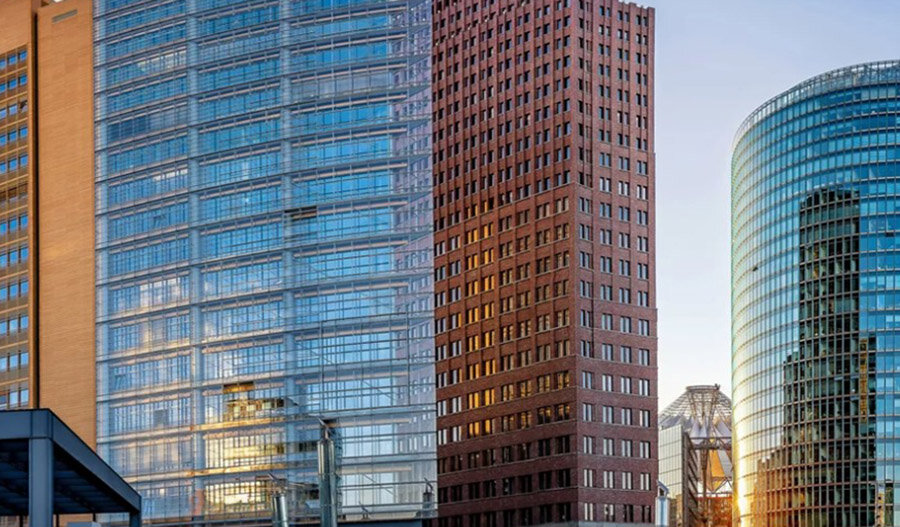Global Real Estate Market in 2025: Growth Amid Turbulence

The global real estate market demonstrated resilience in the first quarter of 2025 despite geopolitical instability and changes in U.S. trade policy, according to research by Jones Lang LaSalle Incorporated (JLL). Despite ongoing uncertainty, investment volumes increased, the office sector continued its recovery, and interest in residential and hospitality assets remained high.
Cautious Management and Investment Strategies
The dominant backdrop for the market has been growing unpredictability in trade and economic policies. New U.S. tariffs and retaliatory measures by other countries have caused cautious behavior among tenants and investors. This has impacted logistics chains, particularly in industrial and retail sectors. Companies now favor short-term planning and asset management flexibility.
According to JLL, the commercial real estate sector entered this period of volatility in a relatively stable condition. A prolonged decline in asset values over the past 2.5 years has effectively reduced risk in this asset class. Global debt levels remain manageable, and liquid debt markets continue to support market activity.
Direct investment in real estate in Q1 2025 reached $185 billion, a 34% increase year-over-year. America posted a 37% growth (to $93B), EMEA rose 41% (to $55B), and the Asia-Pacific region grew by 20% (to $36B). Cross-border investments surged 57%, the highest since 2022.
Investors are favoring sectors with consistent growth: industrial/logistics, residential housing, and alternative assets. Retail saw a modest rebound in investment share, though large-scale deals remain below potential. The main focus has shifted toward asset quality and tenant creditworthiness.
Top Cities for Investment
Among the 18 cities analyzed:
New York led with $24.6B,
Tokyo followed with $23.5B,
Dallas came third with $21.9B.
However, high vacancy rates in New York (15.8%) and Dallas (26%) hinder capital efficiency. Paris shows strong recovery with 9.1% rent growth and moderate vacancy (10.5%). Singapore stands out with low vacancy (8.1%) and a 27.4% rent rebound.
By contrast, San Francisco (35.4% vacancy) and Atlanta (26.7%, no rental growth) remain imbalanced. Resilient markets include Paris, Singapore, Tokyo, and Seoul due to stable demand, active investments, and constrained supply.
Office Sector Recovery
The office market is steadily recovering. All three global regions reported increased leasing activity versus Q1 2024. Most transactions were lease renewals, as companies prefer retaining their current spaces amid rising rents and renovation costs.
In the U.S., new construction is at a historic low. Europe is more active, but premium space in CBDs remains scarce. As a result, competition for high-quality buildings intensifies, especially since most new supply is located in less attractive areas.
Short term, the market is supported by return-to-office mandates and expiring leases. Long term, demand will favor high-end, renovated properties in non-central locations.
Logistics: Strategic Pause and Adaptation
The industrial sector remains robust despite tenant caution. The impact of new tariffs is just beginning to emerge, prompting companies to revise supply routes, logistics strategies, and leasing models. Some are pausing deals, others seeking short-term agreements or temporary spaces.
In the near term, subleases and flexible leases are in high demand. Over the long term, rising e-commerce and production nearshore trends will drive demand for tech-enabled logistics facilities, especially in countries with low regulatory barriers.
Retail: Uneven Trends
Retail trends varied across regions. In the U.S., store closures led to negative net absorption. Vacancy rates are expected to continue rising in malls and neighborhood centers, but Class A retail space remains scarce.
In Europe and APAC, especially tourist-focused regions, demand for prime retail remains strong. The limited new development in mature markets ensures continued supply constraints in premium locations.
Click-and-collect models are regaining popularity. Physical stores are again seen as valuable assets thanks to their profitability, ability to trigger impulse purchases, and reduced delivery costs.
Residential Sector: Top Performer
The "living" sector remains the top investment target for institutional investors. In Q1 2025:
U.S. residential investment exceeded $22B,
Europe remained the leader in transaction volume,
APAC continued its growth trajectory from late 2024.
Drivers include urbanization, housing shortages, and rising solo households. This fuels rental demand amid limited supply. Institutionalization of residential markets is accelerating, with 20 countries projected to hit annual residential investment levels over $500M by 2030. Total five-year transaction forecasts exceed $1.4 trillion.
Hotels Shift Priorities
Revenue per available room (RevPAR) rose 3.9% globally in early 2025. A decline in outbound tourism from the U.S. may occur, but demand remains strong across all regions.
Brands are switching to franchise models to reduce capital risk and increase shareholder value. M&A activity is expected to rise, particularly in lifestyle and non-traditional segments.
Branded hotels managed by third parties grew by 3.8% in 2024 and will continue to expand. Consolidation is expected to accelerate as major brands pursue asset-light strategies.
Investment Outlook: Resilient Segments Lead
According to JLL, demand polarization will shape the market:
Prime assets with ESG features in central areas will thrive.
Obsolete buildings will lose tenants and investor interest.
Uncertainty in trade policy and tariffs will delay decision-making.
Residential and logistics markets will benefit from restructuring supply chains. New manufacturing facilities will take 3–5 years to activate. Retailers will develop hybrid spaces with pickup points and showroom functions.
Hotel brands will focus on franchising and M&A to enhance shareholder value. Non-traditional lodging and long-term stay models will attract capital.
Despite macroeconomic volatility, JLL experts expect housing, hospitality, logistics, and modern offices to retain high investment appeal in 2025 due to limited supply and sustained demand for quality.








